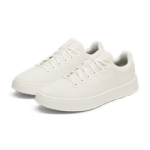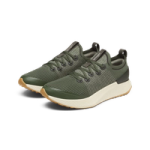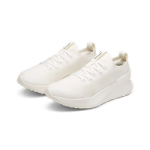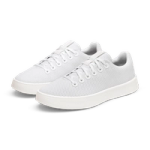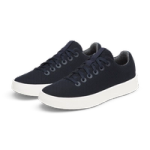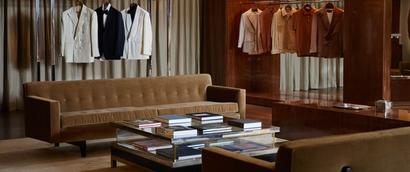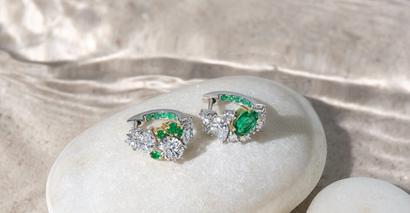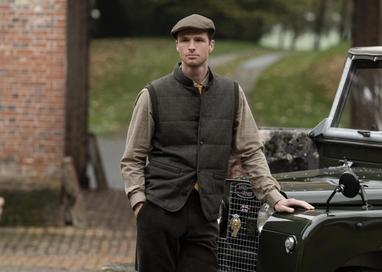
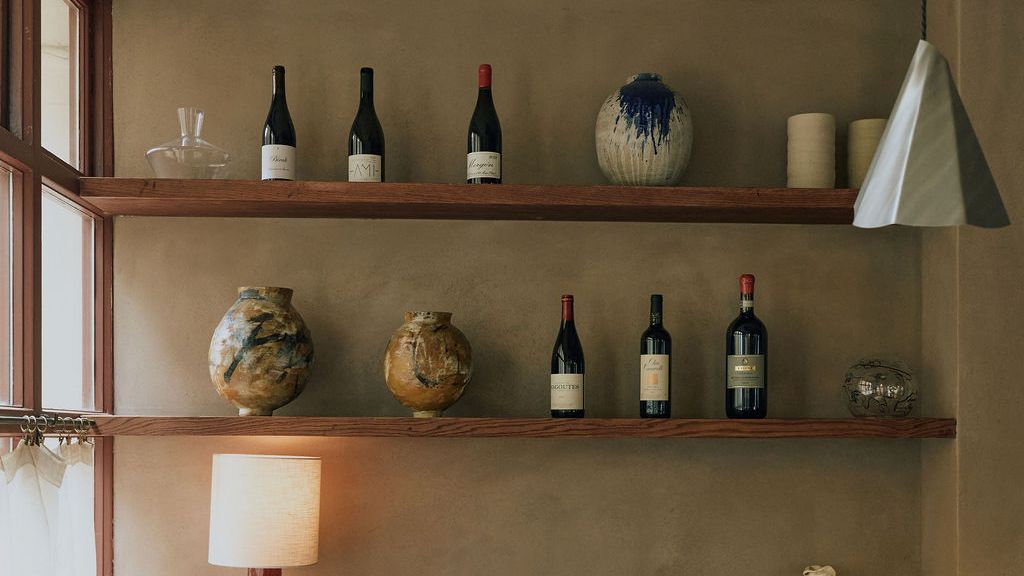
Words: Gentleman's Journal
“Every journey begins with a single step,” is a clanging cliché of entrepreneurship. It’s also, like most clichés, completely and utterly true. The quickest and most reliable way to fail, in any enterprise, is by never starting, that first mental (and sometimes physical) hurdle that many would-be founders never quite leap over. The following four figures, however, skipped on into unknown and complex fields, from educational foundations to sustainable city start ups and plant-based restaurants, with a winning gusto that is reflected in the nuggets of advice that have stuck with them over the years: “put yourself in harm’s way” and “don’t wait until you’re ready.” Here, the founders discuss their tricks for creativity, the things that make them optimistic for the future, and the true meaning of progress.
Kirk Haworth
Kirk Haworth is the chef and co-founder of East London restaurant Plates, which currently holds a Michelin star. A leading figure in British plant-based cookery, he is spearheading a mission to connect people with nature through the food they eat. He is also passionate about the mental and physical wellness of chefs.
Where does your fascination for plant-based food come from?
Plant-based food became a part of my life ten years ago when I was struggling with my health and so started to cook plant-based at home. Allowing plants to take centre stage made me curious to explore their potential through a deep lens of creativity and innovation. There’s a level of restriction in cooking plant-based food, which motivates me to keep pushing the boundaries.
What does sustainability mean to you?
Firstly, it means human health: sustaining ourselves mentally and physically in order to flourish in this world. Then we have the space and strength to create a more sustainable planet. More practically, it means using as many sustainable ingredients as possible and supporting local organic farmers directly.

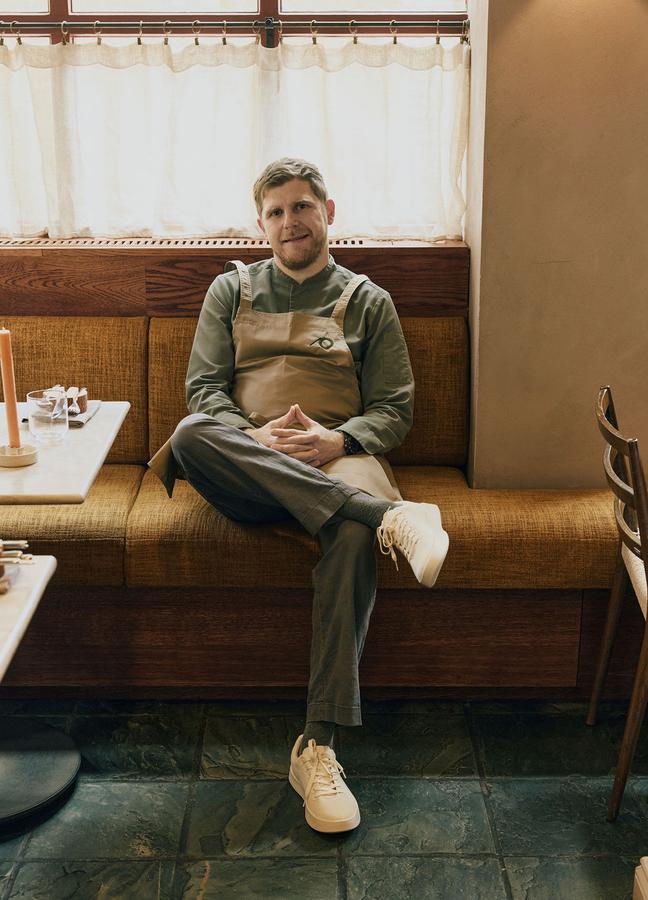
How does nature inspire you?
Nature is a huge part of the philosophy of Plates, so for me we must reconnect to nature as much as possible for inspiration and let nature guide us.
How are sustainability and wellbeing intertwined?
I believe they are both equal and complement each other to create the perfect balance.
How do you maintain creativity?
To maintain creativity is to constantly ask ourselves questions and to be curious about how we can improve our product and guest experience. I’m trying now to get out of London once a month to give myself space and time to be more creative. It’s hard when you’re constantly in your restaurant under pressure to be creative all the time.
What lessons have you learned about leadership as a founder?
I have learned a lot and I am continually learning. I try to look at the hard parts as growth – how can I get better and change my thinking to be a better leader? I try to have no ego when running my kitchen. The values that we instill are kindness, passion and energy for our work.
How do you keep morale within your team high?
I try to get the energy high everyday through my passion and love for what we are creating at Plates as a team. I shake my chefs hands or hug them everyday and thank them for their work as much as possible. I try to use creativity to drive morale – being creative is good for mental spirit and energy. We also run a monthly team wellness session. So far we’ve done meditation, sauna, ice baths, ping pong and team dinners. These are imperative as they send signals to our team that the founders care about them.
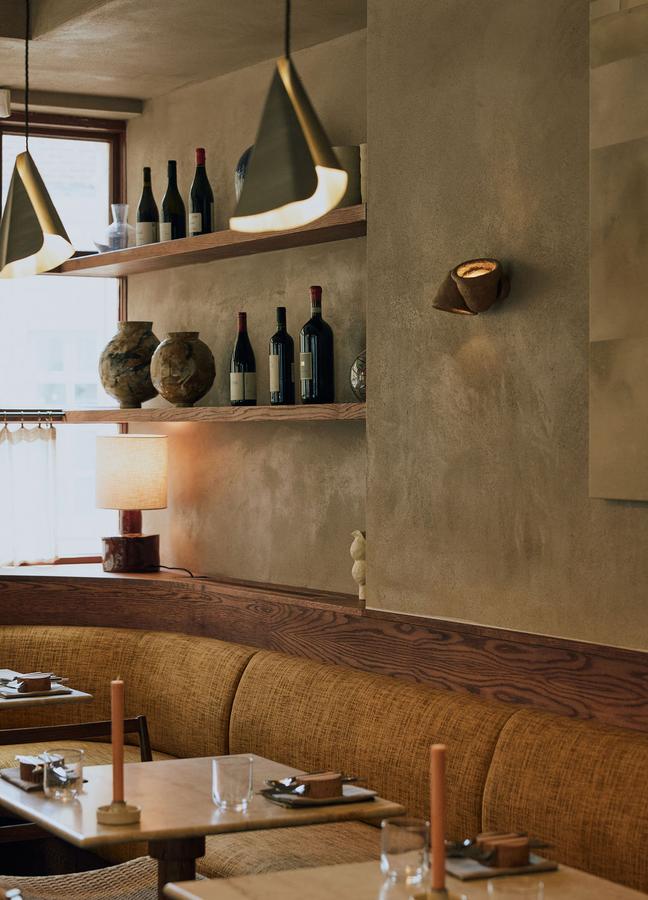
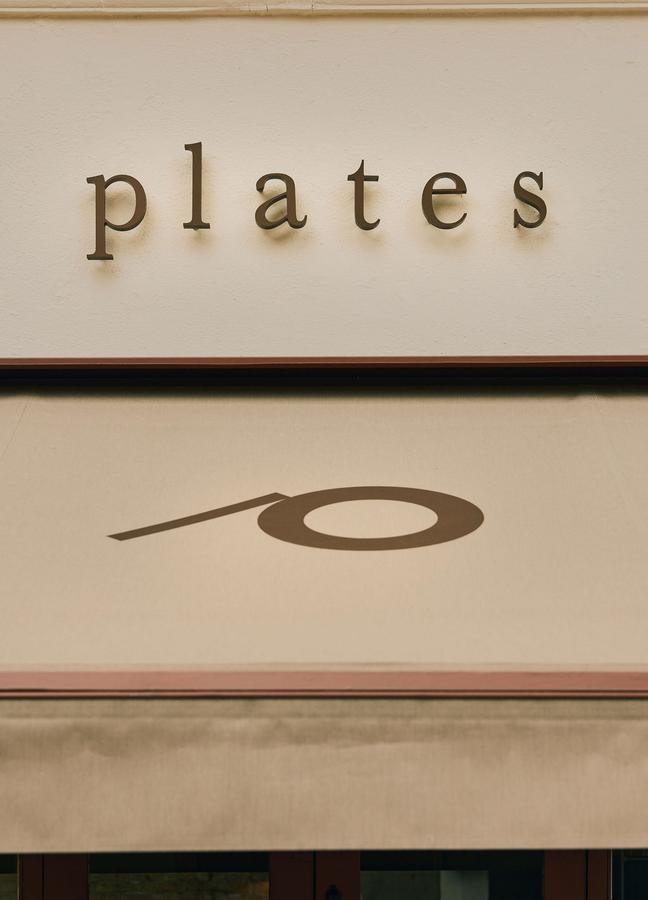
Have you noticed a shift in the public’s perception of plant-based eating?
Yes, definitely but I feel it’s ever changing. My vision for Plates came from my soul – not a trend. Trends come and go but Plates is long-term. Since the beginning I have always tried to create a food style that’s free from labels and inclusive to everyone. It’s just food that should tantalise and excite your taste buds and mind.
What are your hopes for the future of the food industry?
I have high hopes. There are so many incredible young chefs being bold and brave now, doing their own thing in the UK in such a tough climate. It’s never been so exciting and I feel grateful to be inspired by so many incredible chefs.
How do you stay mentally and physically well in a high-pressure role?
I try to work on my health as much as possible. I train in the gym and do saunas most days in the afternoon to keep myself mentally strong for my role. I also listen to inspiring podcasts on business and leadership weekly.
What is the best piece of advice you have received?
To work hard, stay humble and treat people how you would like to be treated.
Dennis Okwera
Dennis Okwera is an activist, model and actor originally from Lumule, Northern Uganda. After fleeing his war-torn community as a child, he sought asylum in the UK, where he established the Lumule Foundation, an organisation dedicated to empowering children in Northern Uganda through education.
How have your personal experiences informed the work that you do?
My personal experiences have deeply shaped my approach to the work I do. I've witnessed firsthand the impact that inequality and lack of access to food during school times can have, leading to limited opportunities for individuals and communities.
How do you balance your roles within the worlds of high fashion and philanthropy?
Balancing these separate worlds has been both a challenge and a real privilege at the same time. But for me I've had to find ways to see both worlds as deeply connected rather than separate.
What have you learned from your time in the fashion industry?
Fashion is a platform that has given me a voice and the opportunity to help fund what I had dreamed of seeing in my communities. I have learnt that both fashion and philanthropy have the power to help us imagine a better world and guide us to bring it to life.
What has been the most surprising part of your entrepreneurial journey?
The most surprising part of my journey has been discovering how deeply people resonate with purpose. The high fashion world can seem superficial or exclusive, so I kind of expected my philanthropy work to be secondary, but I've found it has connected to a lot of the fashion communities.
What are the biggest challenges you’ve faced on your journey with the Lumule Foundation?
One of the main challenges I've faced has been navigating the balance between vision and capacity. I am so passionate about creating change, especially in my community in Lumule, but the need is overwhelming and the desire to do everything at once is so real. I have had to learn how to pace our growth while staying focused on the original vision of the foundation.
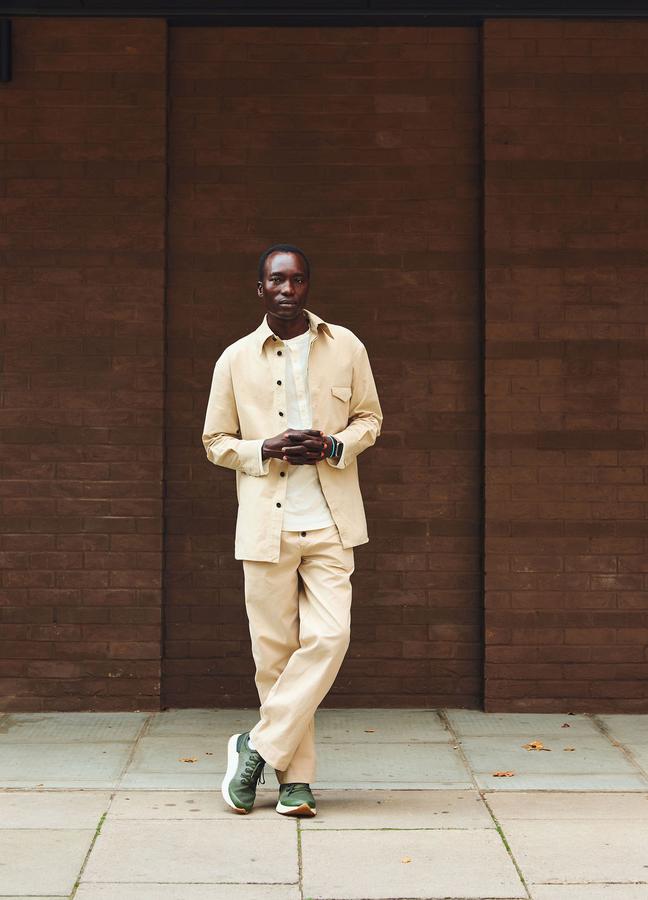
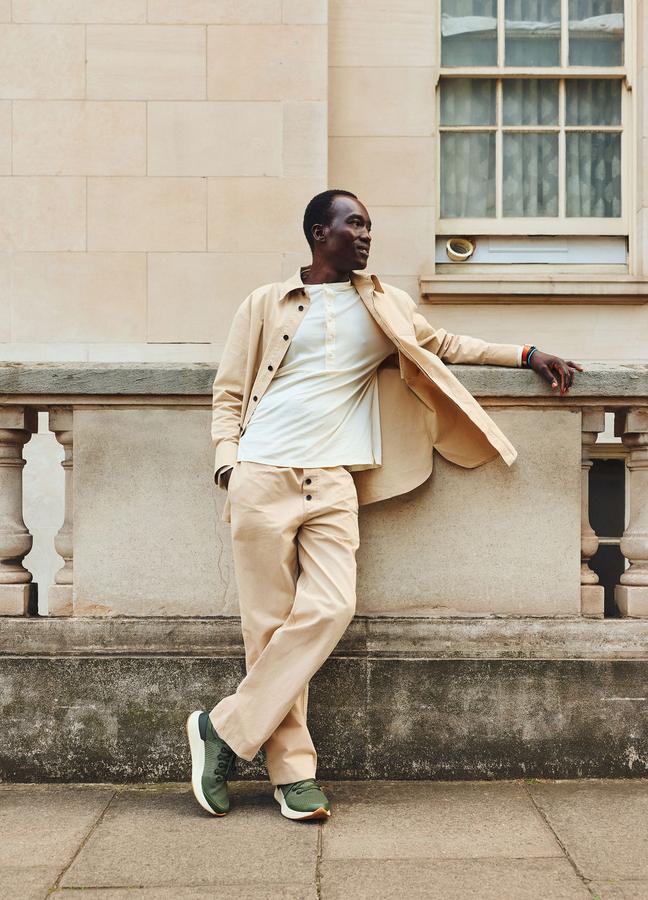
Where do you find hope?
I find hope in people’s resilience, compassion, and the quiet acts of kindness that I see around us.
What are you proudest of in your career?
I’m proud that I’ve been able to use my difficult times growing up to fuel me to bring to life my childhood dreams of creating a safe and nurturing educational space.
What does progress mean to you?
To me, creating lasting change that empowers others to thrive on their own terms is real progress.
What do you hope people will take away from your story?
I hope that whoever reads this realises that no dream is ever too small and no act of kindness is ever wasted – so just go for it.
What are your ultimate goals for the Lumule Foundation?
The ultimate goal for the Lumule Foundation is to empower any child or adult in any community. With purpose, resilience and compassion, it’s always possible to turn personal challenges into platforms for positive change – whether or not that changes the world, you have done your part.
What is the best piece of advice you have been given?
The best piece of advice was from my late grandmother Silvia, who I used to hide with in the bushes during the war. She told me that despite the uncertainties we were going through, my cup wasn’t empty. It was half full and it was up to me to believe that I could fill it up for me and use it to do good for others. That has always stayed with me.
Arthur Kay
Arthur Kay is an urban designer, entrepreneur, academic and advisor to various organisations focused on building sustainable cities, including Transport for London, the Royal Academy of Engineering and Innovo Group. He founded Skyroom, a company that creates affordable homes in the airspace above existing buildings in London, and he is the co-author of Roadkill: Unveiling the True Cost of Our Toxic Relationship with Cars.
What spurred you to start Skyroom?
Cities, like London, are full of empty roofspace (the airspace above buildings). Instead of sprawling outwards, we asked: how can we use the city’s airspace to create homes where people actually need them?
What is the Skyroom mission?
To turn underused or ‘wasted’ space in our cities, and into affordable, sustainable homes for key workers. Cities only work if the people who sustain them can still afford to live in them.
What makes you passionate about building sustainable cities?
Cities shape how billions live, work, and connect. Done badly, they are polluted and unequal. Done well, they can be incredible places to live.
What’s a lesson you learned early on in your career that’s stayed with you?
At my first start-up, Bio-bean, I learned that bold ideas are important, but persistence and pragmatism are what deliver impact.
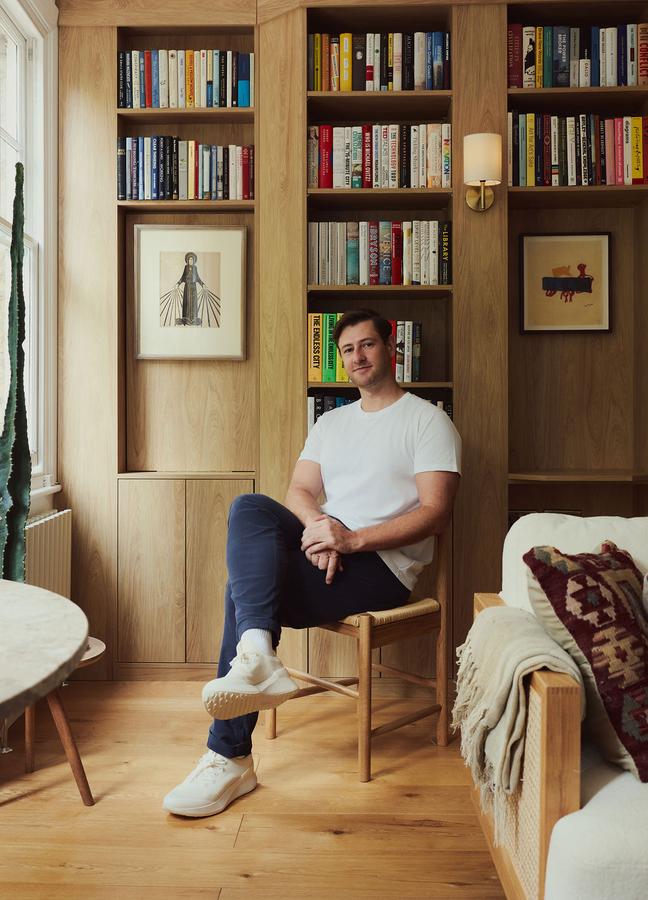
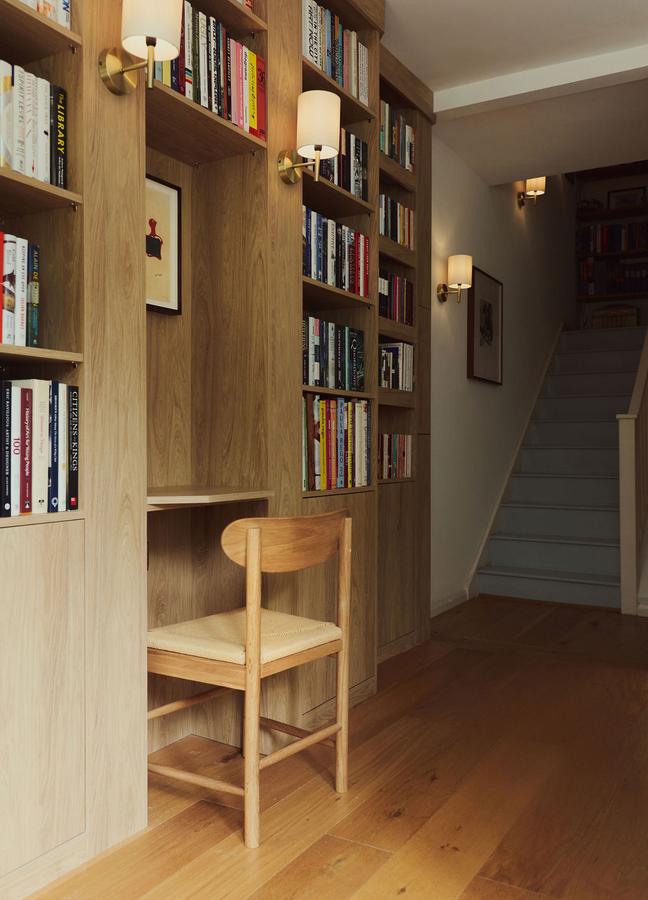
What does progress mean to you?
How do you make cities liveable, exciting, safe, inspiring, clean, prosperous, affordable places to live? Cleaner air, better homes, shorter commutes and making use of ‘waste’ leads to communities that are happier and have more disposable income.
How do you measure success?
Making life in cities better. As with progress it has many metrics, but it needs to be felt by the people who live there, as well as the statistics.
How do you preserve your vision and values as the company scales?
By being clear about why we exist. Keeping it clear and simple. The ‘why’ does not change, even as projects grow more complex.
What advice would you give other entrepreneurs looking to build mission-led companies that generate positive change?
Start with a problem you care about, gather a team who care too, and be prepared to play the long game. Keep asking simple, almost naïve questions. They often lead to the best ideas.
Your new book explores the negative environmental, social and economic impacts of our dependency on cars. Why is this an issue you chose to pursue?
I wrote Roadkill with the eminent anthropologist and philosopher Professor Dame Henrietta Moore. We wanted to expose how our dependency on cars has quietly stripped away fundamental freedoms. It has cost us more than we realise. We go into detail in the book about how we lost those freedoms over time, and how we can work together to reclaim them and expand them.
What makes you hopeful for the future?
“Today’s young people see the car as an unnecessary expense, and in London that’s almost certainly true.” This may sound unlikely from Top Gear’s Jeremy Clarkson. But, he’s right. Car ownership is already starting to decline for younger generations. For a host of factors, they are choosing to walk, cycle, and share transport rather than sit in traffic. That gives me hope. If we can accelerate this shift, our cities will be cleaner, safer, and more enjoyable places to live.
What do you want to be remembered for?
For helping to challenge our toxic relationship with cars.
What is the best piece of advice you have been given?
From my collaborator and friend, Lewis: “Put yourself in harm’s way.” You don’t innovate or challenge the status quo by playing it safe all the time.
Nick Doman and Will Pearson
Nick Doman and Will Pearson founded Ocean Bottle, a B Corp-certified reusable water bottle brand, in 2018, after meeting at London Business School. With the sale of every Ocean Bottle, the company collects the equivalent of 1,000 ocean-bound plastic bottles in weight.
What was the initial inspiration behind Ocean Bottle?
Will: I spent a year working at sea as a deckhand and the contrast was hard to forget – sailing through turquoise waters in the Maldives, I saw an island in the distance smouldering with plastic waste. That moment in particular stuck with me and I felt determined to do something about plastic pollution.
Nick: Will’s experience resonated with me. At London Business School, where we first met, we both had this shared desire: to tackle a major environmental challenge while proving that business and impact could go hand in hand. That’s where Ocean Bottle was born.
What has been the most surprising part of your entrepreneurial journey?
Nick: The scale of collective action has blown us away. We’ve now funded the collection of almost 2 billion single-use bottles as a community – enough to circle the planet 10 times if you put them end to end. Having achieved this as a start-up is something that gives us a lot of hope for the future, when considering the possible impact of more businesses joining us and taking on this kind of business model.
How do you maintain positive environmental impact while scaling your company and making profit?
Nick: From day one, impact was never a side goal, it was the operating model. Every product sold funds plastic collection, and transparency is built into our system through our traceability platform. Growing our company means more reusable bottles sold, more plastic avoided, more ocean-bound plastic collected and more lives impacted. These objectives are rarely at odds, which means we don’t need to pick and choose.
What does sustainability mean to you?
Will: True sustainability, to me, is about giving more than you take. It’s about ensuring that our generation enables future generations to have access to the same resources as we did. In more practical terms this means companies need to start adopting net positive business models – reducing any negative externalities they’re creating in the world like carbon emissions and pollution, while maximising the positive environmental and social impact they make through their supply chain or in supporting regenerative projects.
Nick: It’s about durability and design. We don’t want to add more things to the world – we want to create fewer, better things that last, while driving systemic change in how we deal with waste. We’re still improving here and continuously innovating to make our products even more durable and sustainable.
What is the best piece of advice you’ve been given?
Will: “Don’t wait until you’re ready.” If we had, Ocean Bottle might not exist today. Sometimes you just have to start and get cracking, even if you’re learning on the go.
Nick: “Clarity over complexity.” In impact work, the problems are huge and messy, but if you can communicate a simple, credible and tangible solution, people tend to get behind it.
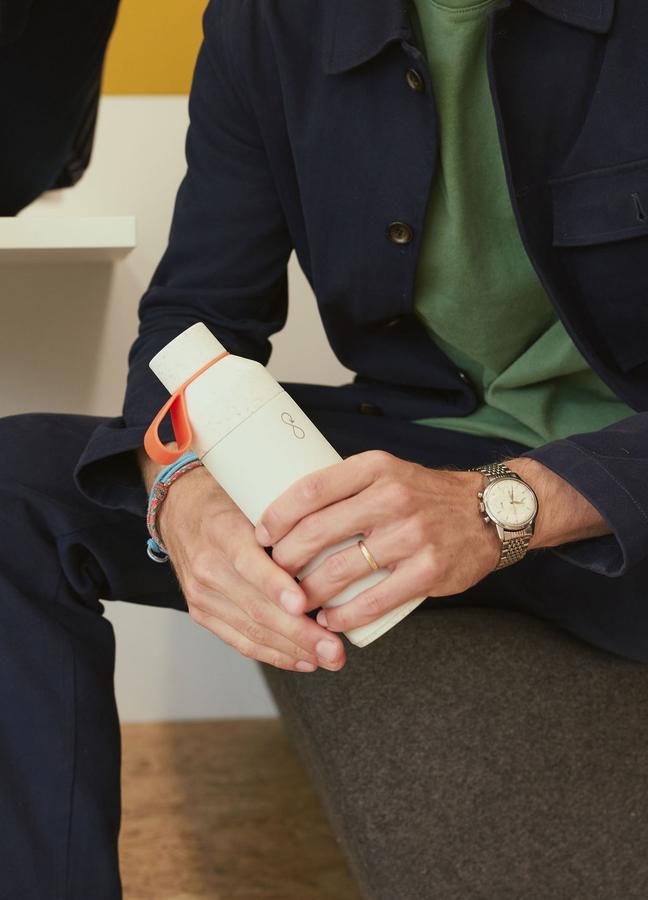

What is the worst piece of advice you’ve been given?
Will: That purpose and profit can’t coexist. It’s outdated thinking, and it ignores the opportunity we have to redefine business. Purpose isn’t niche anymore, it’s expected.
What has been the biggest challenge you’ve encountered so far in launching and leading Ocean Bottle?
Will: Keeping the faith. The scale of the plastic crisis is overwhelming, and there are days our progress feels like a drop in the ocean when looking at the problem. But then I see what our small team and community has achieved and it puts it all into perspective and gives me hope.
Nick: Balancing speed with integrity. There’s always pressure to move fast, especially as we’ve grown globally. But for us, it’s important to not compromise trust and transparency.
What’s your advice for maintaining a healthy working relationship with a business partner?
Nick: Shared values are everything. If your foundation is aligned, disagreements become productive rather than divisive. Making sure you have proper founder time and doing some trips away is a great way of looking after your relationship and ensuring that you’re enjoying the journey together through the tough stuff.
Will: Respect the differences. While we share many things in common – from our passion for the ocean to our love of a good party – Nick is measured and I’m more impulsive. We’ve learned to see that as complementary rather than conflicting. Ensuring that you try to see things from your business partner’s perspective helps create openness and understanding.
How do you nurture a thoughtful working environment for your team?
Will: Culture is everything. We try to create a space where people can bring their full selves – not just their job titles. Our culture is about energy, honesty, and getting stuck into the mission!
Nick: We prioritise transparency and purpose. Everyone at Ocean Bottle knows the impact they’re creating – and that clarity builds motivation and trust. We also recognise that we have big and ambitious goals that require dedication as a team. One of our principles is to give a shit and go all-in on the mission.
What is your ultimate goal for Ocean Bottle?
Will: A future where the next generation doesn’t inherit oceans filled with plastic. Where refill and reuse are the norm, and people feel connected to the choices they make every day. If Ocean Bottle can inspire that cultural shift, then we’ve done our job.
Nick: To stop 7 billion plastic bottles from entering the ocean is our immediate target, but the bigger picture is building a legacy for future generations. Our mission is to protect the ocean, because when we protect the ocean, we protect everything. The ultimate goal is a cleaner, healthier planet that can support the born and the unborn.
